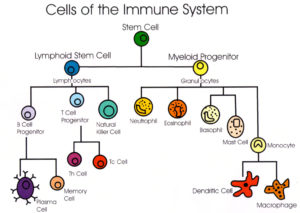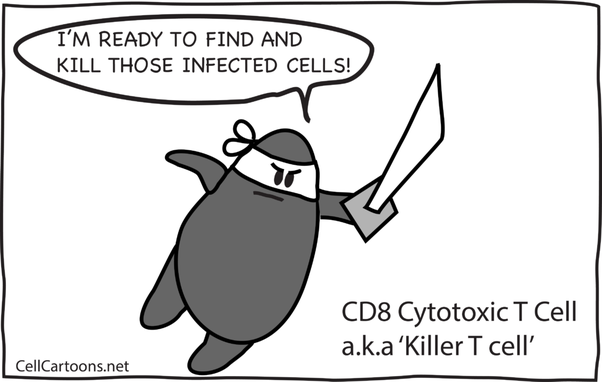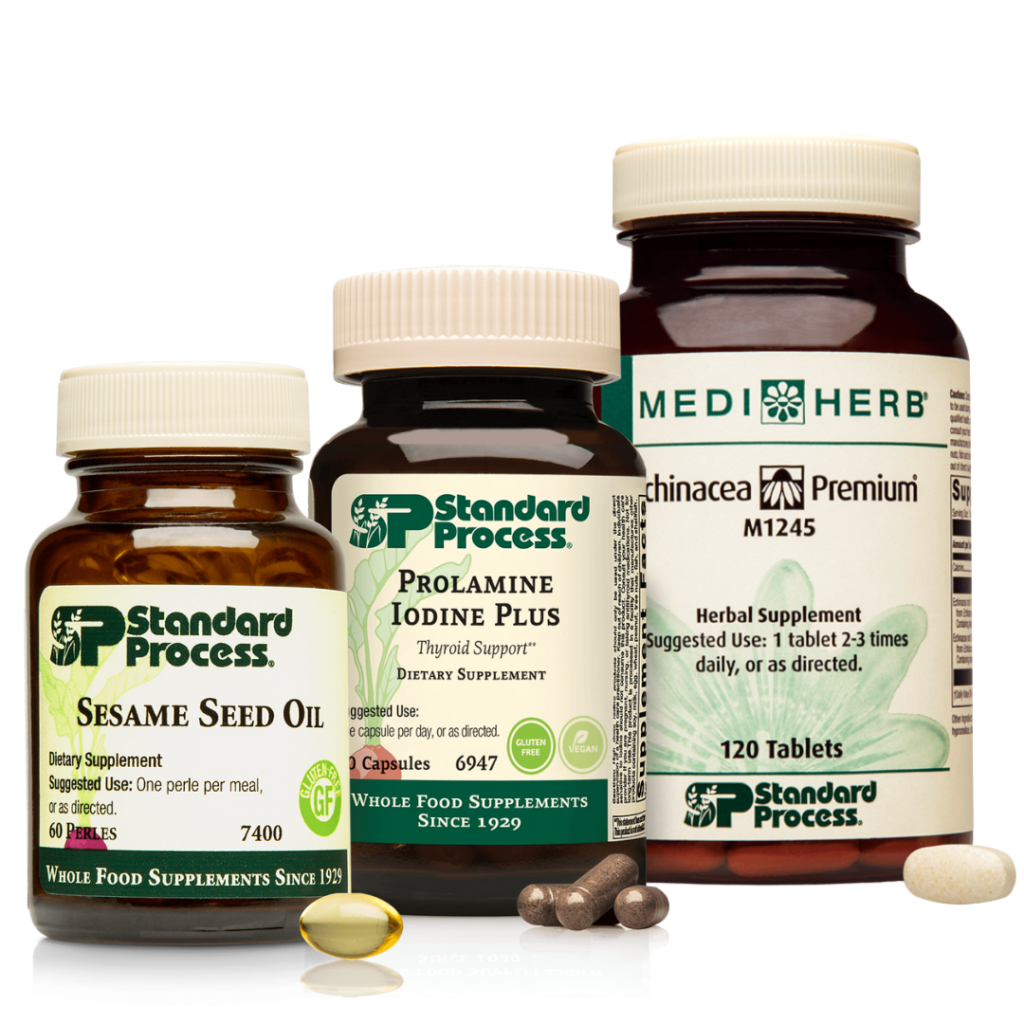By Claire Bacon, ACN, CNC
October is Breast Cancer Awareness Month. Unfortunately, we all know someone who has battled cancer. But too often, that’s where the awareness stops. Not many people know what to actually do about it, or how to prevent it. That’s what this email series is all about! Take a few moments to learn how a strong immune system lowers your risk for cancer in the future.
Anatomy of the Immune System
Put very simply, the immune system is a collection of barriers, cells, and soluble proteins. These components interact with each other in response to foreign stimuli. There are three phases of the immune system, based on the timing of their effects.
- Barrier defenses such as the skin and mucous membranes, which initially prevent invasion into the body’s tissues.
- The “innate” immune response, which quickly identifies and attacks the infection, but is relatively non-specific.
- The “adaptive” response is slower acting. It’s controlled by white blood cells (lymphocytes) that effectively target the infection (aka cell-mediated and humoral immunity).
The bone marrow is the area that creates new immune system cells. On a daily basis, these cells are generated in response to acquired immune burdens. Cell numbers go up during an acute infection, and continually get depleted when the infection is chronic.

Detailed Immune Functions
Lymphocytes are white blood cells found in the blood and lymphatic system. They attack viruses, bacteria and other foreign invaders. For instance, lymphocytes have the most important role for immune functions. There are four main types of lymphocytes involved in the adaptive immune response:
- B Lymphocyte (bone marrow derived)
- T Lymphocyte (thymus derived)
- Plasma cells
- Natural Killer cells
- Generates diverse antibodies
- Secretes chemical messengers to communicate with other cells, others destroy cells infected with pathogens
- Secretes antibodies
- Destroys virally infected cells
Natural Killer cells and Cytotoxic T Cells are the body’s most targeted defenses against viruses. They also work against certain types of cancer. These cells reproduce and fight until they become exhausted by the infection. As cancer cells die, they release antigens. Antigens are substances that the immune system can recognize. Antigens are then taken up and presented on the surface of special antigen-presenting cells (APCs). In this way, other immune cells can “see” them. Within the lymph nodes, the APCs activate the T-cells and teach them to recognize the antigens. As a result, tumors are recognizable by these antigens. The T-cells then travel through the blood vessels; and wherever they recognize the cancer cells, they kill them.

Luckily, there are many things you can do to promote these cellular actions, naturally!
Nutrients to Feed Your Immune System
To be ready to fight invaders, the body needs certain nutrients to fuel the white blood cells. Think of these nutrients as the front lines in the battle between your body and foreign pathogens. These essential nutrients include…
- Vitamin D
- Calcium – is the initial trigger in our immune response to healing.
- Sesame Seed Oil
- Iodine (enhances many cells of the immune system, and is especially protective of breast tissue)
- Echinacea – just a little bit over a long period of time is best.
- Medicinal Mushrooms – contain beta-glucan, which stimulates the innate immune cells (monocytes, natural killer cells, and dendritic cells).
- Ganoderma (Reishi)
- Shiitake
- Turkey Tail
- Probiotics – have a multitude of benefits to support digestion and immune functions
- Nutritional Yeast
- Enzymes – one of their many functions is to act as scavengers to clean up cellular debris

Spotlight on Vitamin D:
Did you know, Vitamin D is acts more like a hormone than a vitamin in the body. Therefore, it’s one of the most important components to being healthy. But how does it work? Vitamin D turns on the power of the T cells to fight against foreign invaders. As a result, a low vitamin D value leaves your T cells unprepared for an attack. This situation will let the infection grow.
Now that we’re deep into crisp, fall weather, it’s a perfect time to check your Vitamin D level. Moreover, you’ll be well-prepared for when cooler weather arrives!
Natural/Dietary sources of Vitamin D include:
- Sunshine (will be seeing less and less of this!)
- Salmon
- Cod Liver Oil
- Organ Meats (such as beef liver)
- Egg Yolks
Lifestyle Tip for Improved Support:
We’ll give you a hint: it’s something we all need more of… deep, good quality sleep. While we sleep, our bodies regenerate, detox, and recoup from the day before. During these precious hours, the immune system cleans up cellular debris. This process is essential to keep all systems in balance. Therefore, do yourself a favor and get 7+ hours each night, regularly.
Remember, the hours before midnight are more restorative than the hours after midnight. Your brain will function better if you get up bright and early. As a result, if you can shift your sleep schedule to go to bed and wake up earlier, your body and brain will thank you even more.

Favorite Immune Supplements:
Are you ready to boost your immunity? If so, certain supplements can provide things you can’t easily get from your diet. These are our favorites:

- Echinacea Premium combines the roots of Echinacea angustifolia and Echinacea purpurea to enhance healthy immune system function.
- Immuplex blends essential micronutrients and minerals, plus spleen and thymus extracts, to feed the immune system literally everything it needs.
- Prolamine Iodine Plus sanitizes the blood, protects breast tissue, and provides fuel for the thyroid.
- Sesame Seed Oil supports platelet and other immune cell production in the bone marrow.
Ask Dr. Bacon how to work these products into a protocol for you!
Being Proactive:
It’s important to do things to promote your immune function every day. An ounce of prevention beats a pound of cure!
We hope these tips motivate you to start boosting your immune system today!


